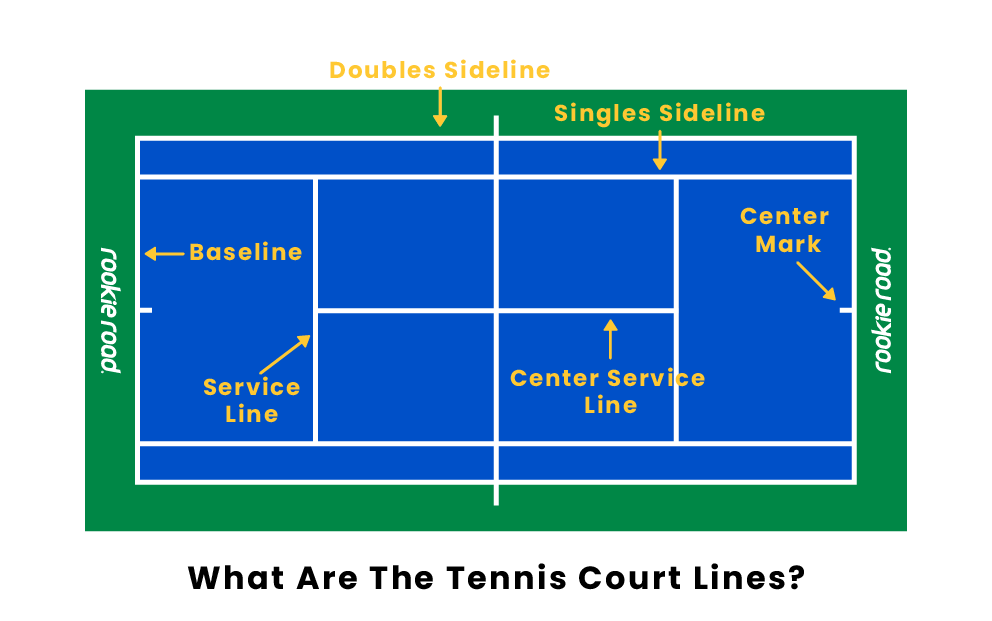 Understanding the Importance of Link Building
Understanding the Importance of Link Building
Link building plays a crucial role in search engine optimization (SEO) and significantly impacts website rankings. In today’s digital landscape, search engines use links as a measure of a website’s authority and relevance. Therefore, understanding the significance of link building is essential for any website owner or marketer.
To comprehend the importance of link building, it is vital to grasp the concept of SEO. SEO involves various techniques and strategies to optimize a website’s visibility and organic search rankings. Among these strategies, link building holds immense value. It refers to the process of acquiring hyperlinks from other websites to your own, signaling search engines that your website is trustworthy and valuable.
Search engines, like Google, consider links as a vote of confidence or a recommendation for a website. When one website links to another, it signifies that the linked website contains valuable information or resources. Consequently, search engines interpret these links as a validation of a website’s authority and relevance. The more high-quality links a website has, the more likely it is to rank higher in search engine results pages (SERPs).
Link building not only enhances a website’s visibility but also ensures that it reaches a wider audience. When reputable websites link to your content, it exposes your website to their visitors, increasing traffic and potential customers. Additionally, these links serve as pathways for users to navigate between related pages on the internet, enhancing user experience and engagement.
The quality and relevance of the links are crucial factors in effective link building. Search engines value links from authoritative websites in the same industry or niche. Building links from reputable sources establishes your website’s credibility and expertise, further improving its ranking potential. However, it is essential to note that link building should focus on quality rather than quantity. Obtaining numerous low-quality or spammy links can harm your website’s reputation and result in search engine penalties.
It is important to approach link building strategically and ethically. Engaging in link schemes or purchasing links can lead to severe consequences from search engines. Instead, focus on creating high-quality content that naturally attracts links from other websites. Publish informative articles, produce engaging videos, or offer valuable resources that others would want to link to. Additionally, actively reach out to relevant websites or industry influencers, showcasing your content and building mutually beneficial relationships.
In conclusion, link building is an integral part of SEO and plays a vital role in improving website rankings. By acquiring high-quality links from authoritative sources, websites can establish their authority, relevance, and credibility in the eyes of search engines. Link building not only boosts visibility and organic traffic but also enhances the overall user experience. Employing ethical link building strategies and consistently producing valuable content can pave the way for long-term success in the digital realm.
Identifying High-Quality Link Opportunities:
Link building plays a crucial role in enhancing a website’s visibility and authority on the internet. However, not all links are created equal. To truly make an impact, it is essential to identify reputable and relevant websites for link building. This article will provide insights into the strategies and techniques that can help you identify high-quality link opportunities and acquire valuable backlinks.
One effective approach to finding reputable websites for link building is through guest blogging. This strategy involves writing and publishing content on other websites within your niche. By contributing valuable and informative articles to authoritative websites, you not only gain exposure to a wider audience but also establish yourself as an expert in your field. Make sure to research and choose websites that have a strong reputation and a solid readership. This way, the backlinks you acquire will carry more weight and contribute to your website’s credibility.
Another strategy to consider is influencer outreach. Influencers are individuals who have a significant following and influence in your industry. Collaborating with them can help you gain exposure and acquire high-quality backlinks. Start by identifying influencers within your niche and building a relationship with them. Engage with their content, share their work, and provide valuable insights. Once you have established a connection, you can pitch your content or request a backlink. Remember to offer something of value in return, such as promoting their content or products on your website. This reciprocal relationship can result in mutually beneficial backlink opportunities.
Resource link building is yet another fruitful strategy to consider. This technique involves creating high-quality resources, such as guides, tutorials, or infographics, and reaching out to relevant websites to include them as references. When executing this strategy, it is crucial to conduct thorough research and create resources that provide genuine value to your target audience. By establishing yourself as a reliable and authoritative source of information, other websites will be more inclined to link back to your content.
In addition to these strategies, it is important to keep a few key factors in mind when identifying link opportunities. First, relevance is essential. Seek out websites that align with your niche and industry to ensure that the backlinks you acquire are contextually relevant. Second, prioritize websites with a good domain authority and a low spam score. This will help ensure that the links you obtain are from reputable sources. Finally, stay up to date with the latest Google algorithms and guidelines to avoid any potential penalties or negative impacts on your website’s ranking.
In conclusion, identifying high-quality link opportunities is a crucial aspect of successful link building. By implementing strategies such as guest blogging, influencer outreach, and resource link building, you can acquire valuable backlinks that enhance your website’s authority and visibility. Remember to prioritize relevance, reputation, and adherence to search engine guidelines when pursuing link opportunities. With a well-executed link building strategy, your website can reach new heights of visibility and establish itself as a trusted source of information within your industry.
Creating Compelling Link-Worthy Content
Emphasize the role of valuable and engaging content in attracting natural backlinks. Highlight the importance of creating original, informative, and shareable content that resonates with the target audience.
In the ever-evolving world of digital marketing, one aspect remains constant – the significance of quality content. Gone are the days when stuffing keywords into an article could guarantee higher search engine rankings. Today, search engines like Google prioritize user experience, and there’s no better way to enhance it than by creating compelling link-worthy content.
When it comes to attracting natural backlinks, the key lies in providing valuable and engaging content. People naturally gravitate towards content that offers them something of worth. By focusing on creating content that educates, entertains, or inspires, you’ll not only capture the attention of your audience but also encourage them to share it with others. This organic sharing paves the way for natural backlinks, as other websites recognize the value your content brings and link to it as a valuable resource.
Originality is another crucial factor in creating link-worthy content. In a sea of generic articles and regurgitated information, standing out is essential. Be the voice that offers a fresh perspective, a unique angle, or a novel solution. By presenting original ideas, you position yourself as an authority in your field, making your content more likely to be linked to and shared.
However, being original alone is not enough. Your content must also be informative and provide value to your target audience. By addressing their pain points, answering their questions, or offering practical solutions, you establish yourself as a reliable source of information. This builds trust and credibility, encouraging others to link back to your content as a trustworthy reference.
In this age of social media dominance, shareability is of utmost importance. Your content needs to resonate with your target audience on a personal level, making them inclined to share it with their social networks. Whether it’s through emotional storytelling, relatable anecdotes, or humorous anecdotes, finding a way to connect emotionally will increase the chances of your content being shared and linked to.
To create truly link-worthy content, you must also consider the preferences of your target audience. Research their interests, understand their needs, and cater to their preferences. By tailoring your content to their specific desires, you’ll not only capture their attention but also increase the likelihood of others within their niche linking back to your content.
In conclusion, creating compelling link-worthy content requires a multi-faceted approach. It involves emphasizing the value and engagement your content provides, focusing on originality, delivering informative and valuable insights, and ensuring shareability while considering the preferences of your target audience. By following these guidelines, you can create content that not only attracts natural backlinks but also nurtures a loyal and engaged audience.
Implementing White Hat Link Building Techniques
In the world of search engine optimization (SEO), link building plays a crucial role in improving a website’s visibility and authority. However, not all link building techniques are created equal. Search engines, such as Google, place a strong emphasis on ethical and sustainable practices, known as white hat techniques. In this article, we will delve into the realm of white hat link building and explore various strategies that comply with search engine guidelines.
One effective white hat technique is broken link building. This strategy involves identifying broken links on other websites within your niche and reaching out to the site owners to suggest replacing the broken link with a relevant and valuable link to your own content. Not only does this technique help website owners fix broken links, but it also presents an opportunity for you to gain a high-quality backlink. By approaching broken link building tactfully and providing valuable content, you can establish mutually beneficial relationships with other website owners.
Competitor analysis is another valuable technique that falls under the umbrella of white hat link building. By analyzing the backlink profiles of your competitors, you can gain insights into their linking strategies and identify potential opportunities for your own website. Look for websites that are linking to your competitors but not to you. By reaching out to these sites, you can showcase the value of your content and request a link to be added. This approach not only helps you build a solid network of relevant links but also helps you keep up with your competition in the search engine rankings.
Outreach is an integral part of implementing white hat link building techniques. Instead of simply waiting for others to discover your content, proactively reach out to relevant websites, bloggers, and influencers in your niche. Offer them valuable resources, guest posts, or collaborations that would be of interest to their audience. By building genuine relationships and providing valuable content, you increase the likelihood of acquiring high-quality backlinks from reputable sources.
When considering white hat link building, it’s crucial to prioritize organic and valuable connections. Focus on building relationships with authoritative websites and industry influencers that align with your niche. Rather than seeking out any link opportunity, prioritize quality over quantity. A few high-quality and relevant backlinks hold much more weight than numerous low-quality ones.
In conclusion, implementing white hat link building techniques is essential for long-term success in SEO. By utilizing strategies such as broken link building, competitor analysis, and outreach, you can establish ethical and sustainable link building practices that comply with search engine guidelines. Remember to prioritize valuable connections and always provide meaningful content to ensure the growth and authority of your website.
Monitoring and Analyzing Link Building Efforts
Link building is a crucial aspect of any successful SEO strategy. It involves acquiring high-quality backlinks that redirect users to your website, thus improving your search engine rankings and driving organic traffic. However, it is not enough to simply acquire these backlinks; it is equally important to monitor and analyze the effectiveness of your link building campaigns. By doing so, you can gain valuable insights into the impact of your strategies on SEO performance and make informed decisions to optimize your efforts.
One of the key aspects of monitoring link building efforts is tracking backlinks. There are various tools available that can help you keep a record of the websites linking to your site. These tools provide detailed information about the source of the backlinks, such as the domain authority, anchor text, and the number of links from each domain. By regularly tracking your backlinks, you can identify any potential issues, such as broken or low-quality links, and take necessary action to maintain a healthy link profile.
In addition to tracking backlinks, it is crucial to measure referral traffic to assess the effectiveness of your link building campaigns. Referral traffic refers to the visitors who land on your website through external links from other websites. By analyzing the referral traffic, you can determine which sources are driving the most traffic and evaluate the quality of the traffic. This information can help you identify the most successful link building strategies and focus your efforts on acquiring backlinks from similar high-performing sources.
Another important metric to consider when monitoring link building efforts is the impact on SEO performance. By analyzing various SEO metrics, such as keyword rankings, organic search traffic, and domain authority, you can evaluate the overall effectiveness of your link building strategies. For example, if you notice a significant increase in keyword rankings and organic search traffic after implementing a particular link building campaign, it indicates that your efforts are paying off. On the other hand, if you observe a decline in these metrics, it might be a sign that your current strategies are not yielding the desired results and require adjustment.
To effectively monitor and analyze link building efforts, it is essential to use reliable tools and establish a consistent tracking and reporting system. There are numerous SEO tools available that can provide valuable insights into backlinks, referral traffic, and SEO performance. Some popular tools include Ahrefs, Moz, SEMrush, and Google Analytics. These tools offer comprehensive features to track and measure the impact of your link building campaigns, empowering you to make data-driven decisions and optimize your strategies for maximum effectiveness.
In conclusion, monitoring and analyzing the effectiveness of your link building efforts is essential for achieving success in SEO. By utilizing tools and metrics to track backlinks, measure referral traffic, and evaluate SEO performance, you can gain valuable insights and make informed decisions to optimize your strategies. Remember, link building is an ongoing process, and continuous monitoring and analysis are necessary to stay ahead of the competition and ensure long-term success in the ever-evolving world of SEO.



